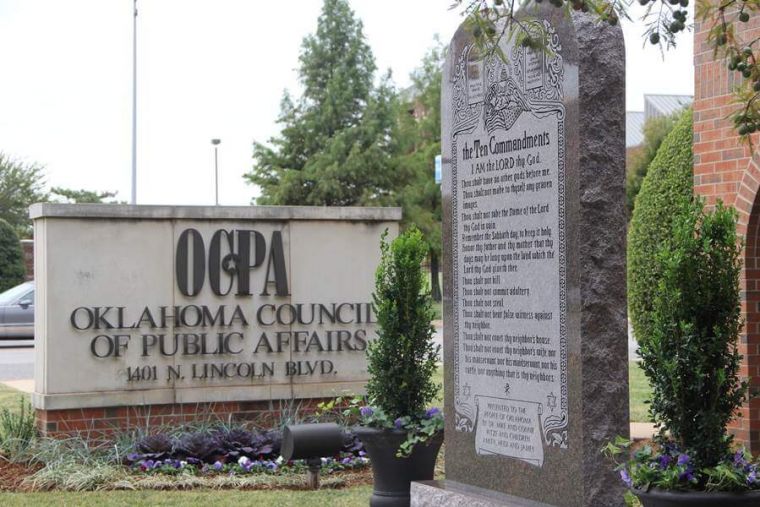Ten Commandments monument moved from Oklahoma capitol to private property

The Ten Commandments monument in Oklahoma was removed Monday night from the state capitol to a private property in compliance with the ruling of the state Supreme Court and a county judge.
It was transferred to the privately-owned Oklahoma Council of Public Affairs (OCPA) campus, about 10 blocks from the capitol complex.
In June, the Oklahoma Supreme Court voted 7-2 to order the removal of the monument, ruling that it violated the Oklahoma Constitution, which prohibits the use of government property to promote "church denomination or system of religion," according to the Christian News Network.
The Oklahoma Capitol Preservation Commission (OCPA) authorised the Office of Management and Enterprise Services last week to remove it.
According to OCPA president Michael Carnuccio, they will keep the monument "while lawmakers pursue legislative solutions that allow it to be returned to the Capitol grounds."
The monument was proposed and donated by Rep. Rep. Mike Ritze in 2009, which was approved by the Republican-controlled state legislature.
In August 2013, the American Civil Liberties Union (ACLU) of Oklahoma filed a lawsuit against the monument, saying its presence on capitol grounds was unconstitutional.
Liberal minister Bruce Prescott, director of the Mainstream Oklahoma Baptists, was the lead plaintiff who said the monument violated the US Constitution's Establishment Clause.
About $4,700 was spent to pay a contractor to remove the monument.
"We wanted it to be done as quickly and efficiently as possible, and doing it at night gave us the best opportunity to do that," Office of Management and Enterprise Services spokesman John Estus said. "The Highway Patrol was also very concerned that having it in the middle of the day could lead to having demonstrations of some kind."
Gov. Mary Fallin said Oklahoma residents should be able to vote for a constitutional amendment that would bring back the monument to the capitol grounds.
"Moving forward, I believe the people of Oklahoma should have the opportunity to vote on a proposed constitutional change to ensure that historical monuments like this one are not pushed out of public spaces. I strongly encourage lawmakers to take up this issue in the next legislative session," she said.
Carnuccio said OCPA disagrees with the state Supreme Court ruling.
"The state Supreme Court cited the Blaine Amendment in its ruling, a provision originally designed to suppress Catholic education while allowing state funding of Protestant-oriented schools," said Carnuccio. "The state needs to repeal the Blaine Amendment, and we will work towards that goal."











